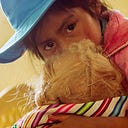“Growing With Your Business” aided the recovery of sustainable craft enterprises led by women in Cusco and Puno.
The COVID-19 pandemic had a devastating effect on the rural textile craft industry in Peru since the latter is highly dependent on tourism. The traditional selling markets of hundreds of artisan associations, which included the direct sale to tourists via local fairs, were paralyzed. As a result, in 2020 there was a 5-year setback in the fight against monetary poverty in rural areas of the country, which affects 45.7% of the population there, according to the National Institute Statistics and Informatics.
To counteract this impact, the United Nations Development Program (UNDP), with the support of the Ministry of the Environment (MINAM), and the NGO Progettomondo, supported associations led by women in Cusco and Puno for 8 months, with the aim of contributing to their digitalization and articulation with dynamic, profitable, and competitive markets to reactivate their income. Through the virtual program “Growing With Your Business”, 60 people were trained, including 58 women artisans from the associations Suri Paq’ocha (Nuñoa, Puno), Virgen de Asunción (Melgar, Puno), Sumac Ttika (Ccorca, Cusco) and Munay Awaq (Ccorca, Cusco).
The four associations are dedicated to the commercialization of alpaca fiber products created under a “biocrafts” approach. Since 2017, with the support of The GEF Small Grants Programme, and the support of the Ministry of the Environment, these associations work to balance the sustainable management of camelids and the conservation of ecosystems through the formation of a sustainable value chain, all through the raising of the alpaca huacaya and/or suri, through to the washing and drying of the fiber, and the weaving based on 100% natural and organic inputs. Through this commercial activity, the artisans can not only conserve the environment but also keep their ancestral culture alive through their local iconography.
“Nuñoa is an alpaca city, most of the citizens live from the alpaca, and as a women’s organization we give added value to its fiber, which allows us to bring a grain of sand to our homes,” says Rosa Antezana from the Suri Paq’ocha association. “I will always say it: learning to make crafts has given me life because thanks to that my children got to become professionals.”
UNDP has looked at the pandemic as an opportunity to strengthen the resilience and response capacity of artisans in the face of the crisis, so that they can face new challenges effectively and sustainably. Through “Growing With Your Business” they have learned to manage their social media platforms, and have learned about branding, new international fashion trends, construction of a business model with a business focus, calculation of costs and prices, how to define the vision and mission of the business, structure its organization, control the quality of their products, as well as how to keep track of their income and expenses.
Likewise, the associations have been connected to e-commerce fashion platforms such as BeeCO and BEEVERSA, which promote responsible consumption, as well as Peruland All Natural, Reactivate and CENCOSUD. Among the institutions that supported this edition of “Growing With Your Business” are also Perú Imparable, Mercado de Lima of the Metropolitan Municipality of Lima, Green Economy Coalition Peru, Michell Alpaca, the Continental University, NCBA CLUSA, Sofa Communications and CEPAS.
Business Resilience
“The artisans are the best example of what it means to be a resilient woman, that is, a woman who, despite the difficulties that life brings us, manages to adapt to get ahead,” explains Carla Zacapa, UNDP Deputy Resident Representative in Peru. Likewise, “the strategy incorporated the young sons and daughters of the artisans in this digitalization process which made way for intergenerational articulation within this new context,” she added.
“Before, we had difficulties with technology because we didn’t know how to use cell phones, but now we manage them well, we have reactivated our income and our products have reached Lima, something we thought could never be done,” highlights Roberta Cáceres from the Virgen de Asunción association. Additionally, Roberta reflects on the impact of the pandemic, “before we were sad because we had no income, now we are happy because we are working and weaving with courage and without fear.”
By incorporating the gender approach, “Growing With Your Business” has contributed to the economic empowerment of the artisans on whom more than 150 people depend. “My reason for creating an association was to be able to organize between women,” emphasizes Milagros Paniura of the Munay Awaq association. “Traditionally, women in the community have been exposed to sexism, men went out to work and women were left in charge of the house and the animals. As women of the community, we feel motivated to bring money into our own homes, and we feel it is important to have our own economic income.”
Through the strengthening of business management skills and the promotion of teamwork and organizational cohesion, they have also strengthened their self-esteem and leadership skills. For Roberta, not only “there has been progress in organization and internal cooperation”, but she also emphasizes that “before I was afraid to speak out and give my opinion, but not anymore.”
Despite the challenges that the crisis imposed on the artisan sector, Milagros highlights the enthusiasm that persists in her colleagues. “This pandemic has not discouraged us because we have the will and desire to continue with our crafts, it is what we like and are passionate about.”
Written by Mariana Bresani Bravo, Development and Business Sustainability Specialist.
